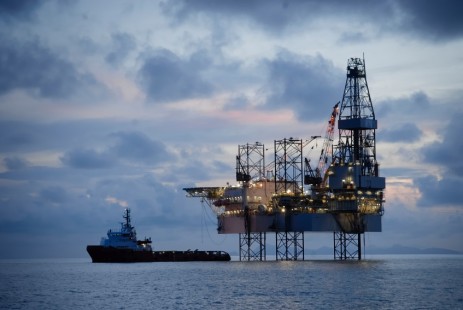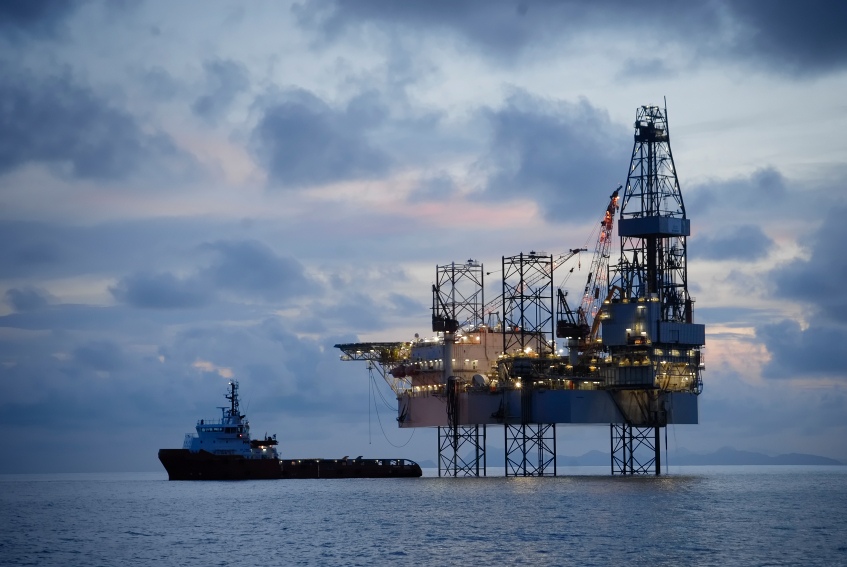 A stormy debate is brewing over the offshore drilling moratorium.On Monday, the Obama administration unveiled its do-over plan to temporarily stop deepwater drilling.
A stormy debate is brewing over the offshore drilling moratorium.On Monday, the Obama administration unveiled its do-over plan to temporarily stop deepwater drilling.
On Tuesday, the heads of the commission created by President Obama to investigate the BP spill told reporters that maybe the moratorium should be lifted sooner rather than later.
“What’s up with that?” Obama might have wondered.
The three-month debacle of the Gulf gusher is now playing out as an intense tug-of-war: fear of unemployment versus the opportunity to profoundly change environmental policy; the need to take more risks to find oil versus the need to crack down on an industry intent on ignoring past mistakes.
A little oil with your shrimp? It took only a day of testimony from people worried about losing their livelihoods — including a singing crawfisher — to shift the commission’s co-chairs, former EPA chief William Reilly and former Florida senator and governor Bob Graham, into reverse on the moratorium. You might think the last thing Gulf fishers would want now is more deepwater drilling. You’d be wrong.
As Bryan Walsh notes in Time‘s Ecocentric blog, the economy in Louisiana is a complicated mesh. It’s a place where the annual Shrimp and Petroleum Festival is still on for September. Walsh writes:
It’s horribly unfair but the fact that fishing and tourism is on its knees in southern Louisiana because of the spill only makes those remaining jobs in the oil and gas industry all the more valuable. (It’s a bit like New York City, where Wall Street’s greed may have helped cause the recession — yet the financial industry’s tax revenues were so important to the city that its leaders still fought further regulation.) There is nothing else, at least not right now. And the state is accustomed to fishing, boating and drilling all happening side by side.
So far they haven’t mentioned locusts: Naturally, local politicians are falling over each other playing the jobs card. Louisiana Gov. Bobby Jindal (R) never misses a chance to raise the specter of crippling unemployment. His lieutenant governor, Scott Angelle, predicts economic Armageddon in an op-ed in the Lafayette Daily Advertiser:
The severity and duration of this economic catastrophe on Louisiana … will be far greater than that of the oil spill itself. Some rigs idled by the moratorium are already being moved to foreign waters where they can begin work again immediately, and there is a high probability that others will follow if the moratorium’s end remains in question. This will cripple our local, state, and national economies for years, rather than months.
Local media is joining in the chorus of woe. Here’s a taste from an editorial in the Houston Chronicle:
This approach [the moratorium] is wrongheaded. It seems certain to cost tens of thousands of drilling-related jobs across the Gulf, including thousands of good jobs in the Houston area. It would also be likely to bring collateral damage to independents, the adept smaller players who often specialize in wringing out the last production from wells left behind by the mega-producers.
After the spill is gone: The other side of the debate is voiced by a New York Times reader:
While yes, there is an immediate economic impact to the region due to the moratorium, it is also an opportunity to create a new, less destructive life blood for the gulf economy. Furthermore it is only speculation that the moratorium is affecting the gulf economy more than the spill, the full economic impact of this spill will only be realized years after the well has been stopped, the oil cleaned up and people believe that it is no longer hazardous to their health to visit the gulf coast.
You’re so demanding: Michael Bromwich, new head of the freshly renamed Bureau of Ocean Energy (formerly the inept and corrupt Minerals Management Service), also testified before the Reilly/Graham commission. He quickly got to the bottom line on the drilling ban: Why let oil companies start drilling again if none of them can guarantee they can prevent a deepwater blowout or deal with one if it happens?
Don’t know much about history: The ugly truth is that oil companies, particularly BP, have shown they can’t be trusted not to cut corners when safety precautions get expensive. They don’t even learn from their past horrible mistakes. A Washington Post story by Joe Stephens makes that painfully clear:
A commission that investigated the [Exxon Valdez] spill found that oil companies cut corners to maximize profits. Systems intended to prevent disaster failed, and no backups were in place. Regulators were too close to the oil industry and approved woefully inadequate accident response and cleanup plans. History is repeating, say officials who investigated the Valdez, because the lessons of two decades ago remain unheeded.
“It’s disappointing,” said 84-year-old Walt Parker, chairman of the Alaska Oil Spill Commission, which made dozens of recommendations for preventing a recurrence. “It’s almost as though we had never written the report.”
Details, details: Mark Clayton of The Christian Science Monitor reports that both BP and government regulators knew about flaws in blowout preventer technology, which failed to stop the catastrophic Deepwater Horizon explosion last April.
A New York Times investigative team reports that BP’s reputation for boldness was matched by its failure to learn from the past:
Despite a catalog of crises and near misses in recent years, BP has been chronically unable or unwilling to learn from its mistakes, an examination of its record shows …
“You can have the best intentions in the world, you can have the best equipment in the world, but it’s a combination of intentions, equipment and judgment that keeps accidents out of the workplace,” said Joseph H. Bryant, who ran BP’s operations in Angola from 2000 to 2004 and who is now chief executive of Cobalt International Energy. “If you are going to ask people to innovate, you’d better make sure that they know that any risks they take are manageable.”
Numb and nummer: So when will we know how this will play out? Are we in the middle of a watershed moment in the country’s environmental history? Historian Adam Rome, in an interview with Grist’s Jonathan Hiskes, says it may be a while before we find out:
It’s possible that we’ve become desensitized, that it’s harder and harder to shock ourselves …
Do we dare to be shocked?




